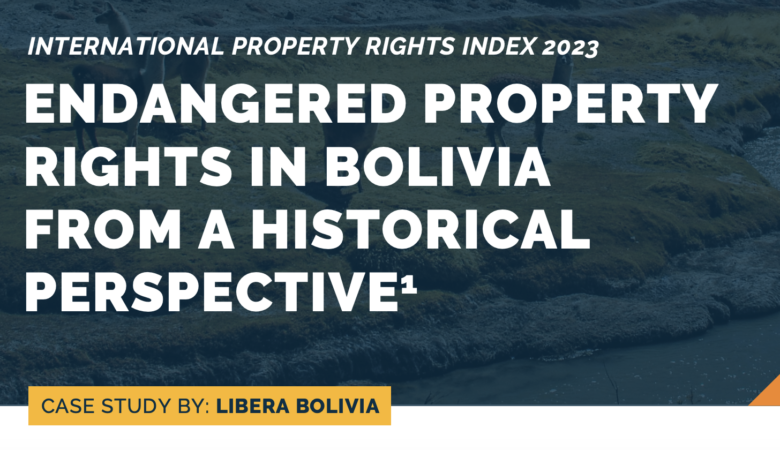Endangered Property Rights In Bolivia From A Historical Perspective. Interview with Leonardo Siles.
Endangered Property Rights In Bolivia From A Historical Perspective. Interview with Leonardo Siles.
The Property Rights Alliance had the pleasure of interviewing Leonardo Siles, a founding member of Libera Bolivia, and the author of “Endangered Property Rights in Bolivia from a Historical Perspective.”
1. What is LIBERA’s mission and when was it founded?
LIBERA is a think tank with the mission to generate a free, fair, and equitable society in Bolivia. It was founded in 2015 to engage university students in introducing them to the principles of prosperous societies.
2. What are LIBERA’s efforts in promoting stableproperty rights in Bolivia?
Based on our institute’s analysis, the importance of property rights is not well understood in Bolivia. For example, schools teach that expropriations, like the onespresented in our case study, have been “great victories” for the country in promoting Bolivian nationalism. Our research seeks to show the opposite, namely that these expropriations were detrimental to the development of the Bolivian economy and society in the short and long term. This is important both as an academic endeavor and as a tool for policymakers who wish to understand our current path of development.
3. Which expropriations are you referring to, in particular?
We allude to three important expropriations in our case study. In 1937 the first major expropriation took place when the president announced the confiscation of theproperty of the Standard Oil Company of Bolivia by the State. In the 1950s large mining properties were confiscated by the State from Bolivian and immigrant entrepreneurs who had devoted their time and money to making the mines productive. Finally, in 1969 a majorexpropriation took effect in the hydrocarbons sector depriving the Bolivian Gulf Oil Company of its property. This day was later named National Dignity Daysuggesting that the expropriation of private property issomething to be proud of.
4. Does your current legislation succeed in enforcing property rights?
When it comes to the property rights of natural resources, such as oil, or forests our Constitution is inadequate. For example, private property is still defined in the Constitution as something that must fulfill a social function. Or take article 359 as an example of the 2009 Bolivian Constitution, which states: “[Hydrocarbons are] the inalienable and imprescriptible property of the Bolivian people. The State, in the name of the Bolivian people exercises, to this day, ownership of all hydrocarbon production in the country, and the State is solely authorized to sell it. All the income received from the commercialization of hydrocarbons is the property of the State.”
These two examples portray just how lacking our constitution is as regards property rights. Of course, this has grave risks and negative effects on our economy: no significant investments have been made in ourhydrocarbons sector, resulting in a huge slump in our natural gas reserves, which constitute Bolivia’s greatestexport. The Bolivian President also acknowledged in August that hydrocarbon production has reached a new low.
Our property rights scheme is flawed, but LIBERA is working on introducing major changes that ensure and make property rights enforceable.

